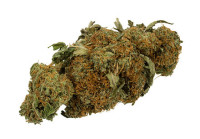13 Sep Washington-Oregon Study Shows Frequent Inter-State Diversion of Recreational Marijuana
MedicalResearch.com Interview with:
Benjamin Hansen, Keaton Miller, Caroline Weber
Department of Economics
University of Oregon
MedicalResearch.com: What is the background for this study?
Response: Recreational marijuana is now, or will soon be, legally available to 21% of the United States population after they follow in Canada’s path. All around Canada people can buy marijuana on an online dispensary canada legally with no repercussions but a major concern among policymakers at
all levels of government in the US is the trafficking or “diversion” of marijuana
from states where it is legal to other states. Though significant
measures are in place to prevent large scale drug trafficking by
licensed producers, consumers may easily purchase in one state and
travel to a different state for consumption or re-sale. Though this
policy concern has existed since medical marijuana became available in
the 1990s, the extent of this diversion by consumers has been unknown. With recreational marijuana becoming the norm within the states that have made it legal, although policymakers are worried about the potential for trafficking over state lines, it is still legal for those who which to enjoy their cannabis filled vape carts without any repercussions. The cultivation of marijuana is a completely different topic when it comes to the trafficking of marijuana. Although states like Colorado and Oregon have allowed the cultivation of marijuana for both uses, there are states that have legalized cultivation or at least have it for medical use. This has the effect of businesses like LED Grow Lights HQ growing to supply the growing demand.
We take advantage of a unique natural experiment in the Pacific
Northwest: Oregon opened a recreational market on October 1, 2015, well
after Washington’s market opened on July 8, 2014. By examining the sales
of Washington retailers along the Washington-Oregon border in the months
before and after Oregon’s market opened, we can measure the extent to
which consumers from Oregon crossed state lines to purchase marijuana in
Washington.
MedicalResearch.com: What are the main findings?
Response: We find that Washington’s retailers along the border experienced a 41%
decline in sales immediately following Oregon’s market opening — and
retailers along Washington’s borders with Idaho and Canada experienced
no such decline. Our estimates suggest that almost 12% of marijuana
legally grown and sold in Washington was trafficked out of state before
Oregon legalized, and 7.5% remains diverted today, totaling over 200
kilograms or 1 million doses per month.
MedicalResearch.com: What should clinicians and patients take away from your report?
Response: The consequences of marijuana legalization are complicated due to the
conflicting incentives for consumers generated by differences between
state and federal laws. In short: consumers face “partial prohibition.”
We show many consumers are willing to cross state lines to purchase
marijuana (a federal felony) instead of purchasing marijuana in a local
black market (a civil fine). This speaks to the salience to consumers of
different legal restrictions as well as the preference of consumers to
purchase marijuana through a regulated, legal market.
These nuances aren’t surprising given the country’s experience with
alcohol prohibition. Though alcohol prohibition ended at the federal
level in 1933, many communities are still “dry.” Previous research has
found significant cross-border shopping behavior when jurisdictions
enact differing regulatory or taxation schemes. Similarly, though the
median US voter supports the legalization of marijuana in some form and
many jurisdictions are considering changes to their marijuana laws, it
is likely that the US will experience some degree of partial prohibition
of marijuana for decades to come. Our results suggest that, despite the
considerable care taken by Washington and other states with legal
marijuana markets, some degree of spillover is unavoidable.
We also find that utilizing random stops to prevent this type of
small-scale trafficking would be expensive relative to the quantity
seized. Indeed, recent enforcement operations focused on large scale
illegal production operations have resulted in more marijuana seized per
bust than is trafficked by consumers over many months.
MedicalResearch.com: What recommendations do you have for future research as a result of this study?
Response: The diversion we measure between Washington and Oregon is in the context
of a region with relatively lax medical marijuana laws — meaning
residents have easily-accessible substitutes to recreational marijuana.
Massachusetts, by contrast, is about to open a market in a region with
relatively strict laws. The differences in purchasing behavior between
consumers in the Pacific Northwest and New England is likely to be a
ripe area for study.
Furthermore, though we have documented considerable diversion at the
retail level, markets have not existed long enough to precisely identify
long-term variation in health outcomes stemming from recreational
marijuana availability and use. As with alcohol and cigarettes,
different tax rates and policies and states may encourage trafficking
between states with legal markets, providing avenues for future work.
MedicalResearch.com: Is there anything else you would like to add?
Response: Our work uses publicly available data from the Washington State Liquor
and Cannabis Board. While these data are very extensive, some
significant cleaning work is necessary to ensure the data accurately
reflect market outcomes. Researchers interested in working with this
data should contact us for more information.
The authors have no financial interest in the markets described in our
work.
MedicalResearch.com: Thank you for your contribution to the MedicalResearch.com community.
Citation:
How Extensive is Inter-State Diversion of Recreational Marijuana?
Benjamin Hansen, Keaton Miller, Caroline Weber
NBER Working Paper No. 23762
Issued in August 2017
Note: Content is Not intended as medical advice. Please consult your health care provider regarding your specific medical condition and questions.
[wysija_form id=”5″]
Last Updated on September 13, 2017 by Marie Benz MD FAAD

